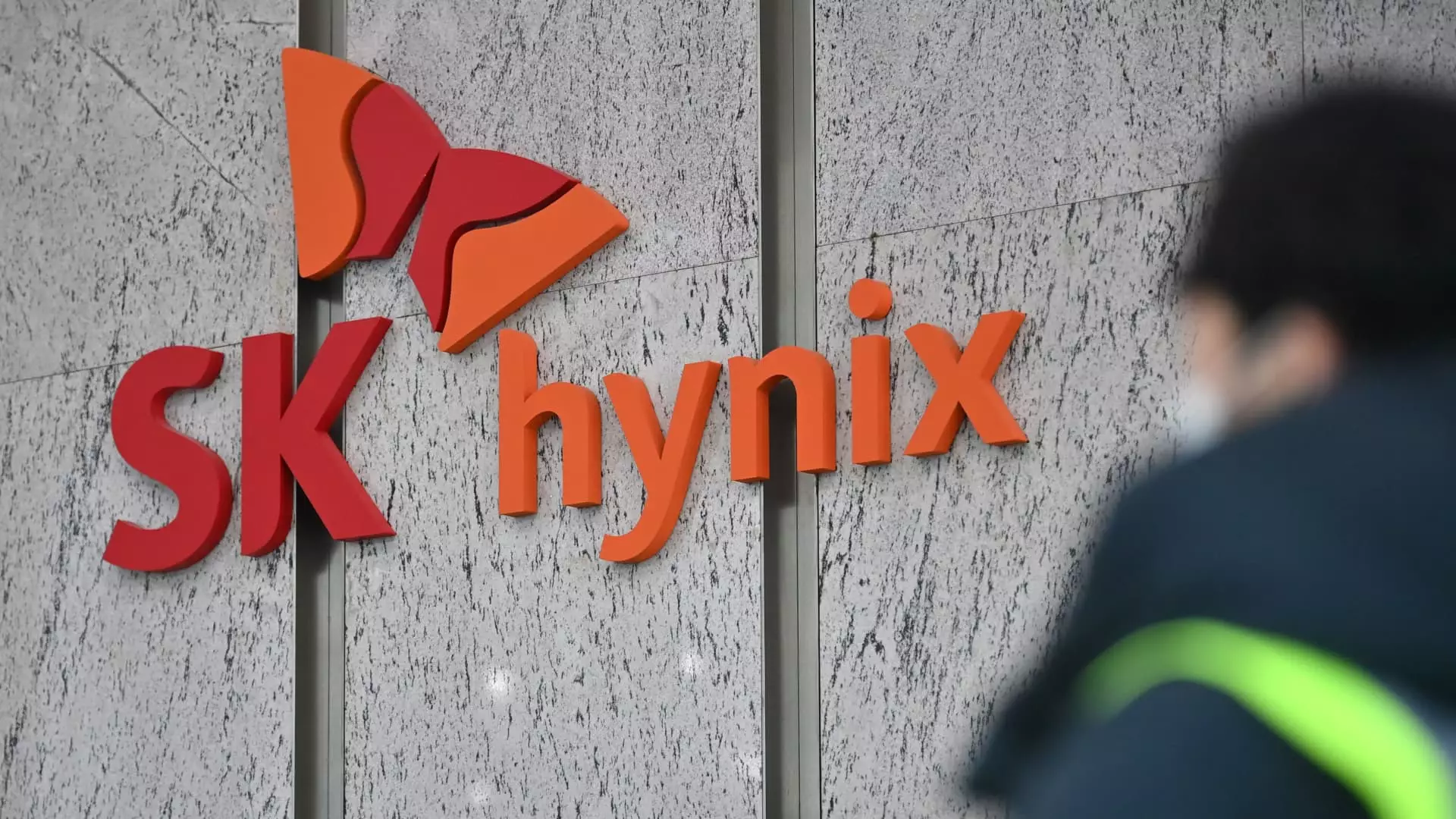SK Hynix, a major player in the memory chip industry, recently announced its second-quarter results, showcasing a significant uptick in profits. The company reported revenue of 16.42 trillion Korean won, marking an impressive 124.7% increase from the previous year. Additionally, operating profit reached 5.47 trillion Korean won, the highest level in six years. This growth can be attributed to SK Hynix’s stronghold in advanced memory chips critical for artificial intelligence computing, particularly high-bandwidth memory chips for AI applications.
The surge in revenue for SK Hynix was largely driven by the continuous rise in prices of its memory products, fueled by the robust demand for AI memory solutions, including high-bandwidth memory. This spike in demand can be attributed to the increasing utilization of AI in various industries, ranging from data centers to consumer electronics. SK Hynix’s focus on supplying high-bandwidth memory chips for AI chipsets, notably for companies like Nvidia, has positioned it as a key player in this space.
Despite its recent success, SK Hynix faces challenges in meeting the growing demand for high-bandwidth memory chips. The company has recognized the need to expand its high-bandwidth memory (HBM) capacity to cater to the booming demand for AI processors. SK Hynix acknowledges that HBM production requires more wafer capacity than regular dynamic random access memory (DRAM) products, adding to the complexity of scaling up production. As such, the company plans to invest heavily in ramping up its HBM capacity to address the tight supply situation in the memory chip market.
Looking ahead, SK Hynix remains optimistic about the market demand for AI memory products, foreseeing a sustained momentum in the second half of the year. The company aims to solidify its leadership in the HBM market by mass-producing 12-layer HBM3E products, with plans to begin mass production in the current quarter. By strategically aligning its production capacity with the evolving needs of the AI industry, SK Hynix is poised to capitalize on the growing demand for high-performance memory solutions.
Within the memory chip market, SK Hynix faces competition from other major players like Micron and Samsung. While SK Hynix has been a dominant supplier of high-bandwidth memory chips, it faces challenges from competitors seeking to gain market share. Recent reports suggest that Samsung has made strides in securing its HBM3 chips for use in Nvidia processors, signaling potential challenges for SK Hynix’s market position. As the industry dynamics evolve, SK Hynix will need to stay agile and innovative to maintain its competitive edge.
SK Hynix’s recent financial success and strategic focus on AI memory products underscore its position as a key player in the memory chip industry. With a strong track record of delivering high-quality memory solutions and a proactive approach to addressing market demand, SK Hynix is well-positioned to capitalize on the growing opportunities in the AI computing space. By investing in expanding its HBM capacity and staying ahead of market trends, SK Hynix is poised for continued growth and success in the dynamic memory chip market.

